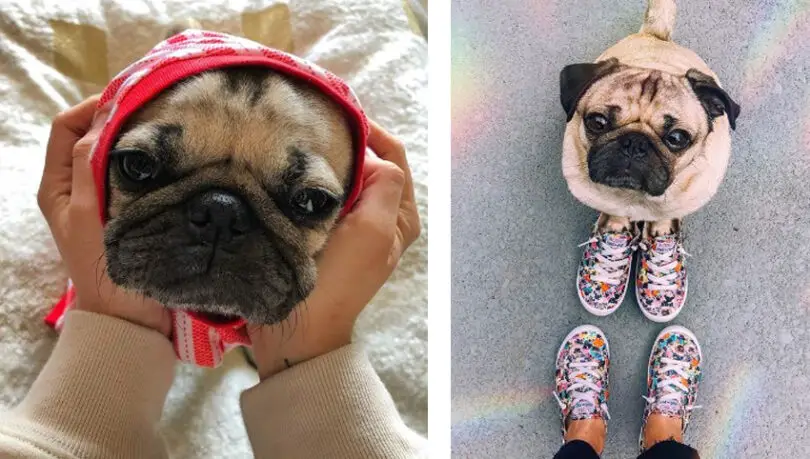Pug Pet Peeves: 10 Things That Drive Your Pooch Barking Mad
Introduction:
Living with a Pug is a delightful experience, but these adorable companions have their quirks and preferences. While Pugs are known for their easygoing nature, there are certain things that can truly get under their wrinkled skin. In this article, we explore 10 common behaviors that can make your Pug cringe, bark, or simply give you that disapproving look.
- Ignoring Their Need for Cuddles: Pugs thrive on affection and love to be close to their humans. Ignoring their desire for cuddles can leave them feeling neglected and, in turn, a bit grumpy.
- Loud Noises: Pugs have sensitive ears, and loud noises can be particularly distressing for them. Whether it’s thunder, fireworks, or excessively noisy environments, it’s best to create a calm and quiet space for your Pug.
- Being Left Alone for Too Long: Pugs are social creatures and can suffer from separation anxiety if left alone for extended periods. They prefer the company of their humans and may become anxious if left without companionship.
- Overheating: Due to their short noses, Pugs can struggle with regulating their body temperature. Hot weather, strenuous exercise, or being in a confined space without proper ventilation can make them uncomfortable and irritable.
- Aggressive Behavior: Pugs are not fans of aggression, whether it’s from other dogs or humans. They prefer a peaceful and friendly environment, so it’s important to introduce them to new people and pets with care.
- Being Restrained Too Tightly: Pugs are not fans of feeling constricted. Tight leashes, restrictive clothing, or being held too tightly can make them feel uncomfortable and anxious.
- Bathing and Grooming: While Pugs love attention, they may not be the biggest fans of bath time and grooming sessions. It’s important to make these experiences as positive as possible to avoid any negative associations.
- Unpredictable Schedules: Pugs appreciate routine. Changes in feeding times, walks, or bedtime can throw them off balance, leading to a disgruntled Pug. Keeping a consistent schedule helps them feel secure.
- Being Teased or Ignored: Pugs are sensitive souls, and teasing or ignoring them can hurt their feelings. They respond best to positive reinforcement and gentle interactions.
- Not Enough Playtime: Pugs have playful spirits, and they thrive on playtime. Lack of stimulation or exercise can result in boredom and restlessness, so make sure to incorporate fun activities into their daily routine.
Conclusion:
Understanding your Pug’s preferences and avoiding these common pet peeves can lead to a harmonious and happy relationship. By catering to their need for affection, routine, and a comfortable environment, you can ensure that your Pug remains the cheerful and content companion you fell in love with. After all, a happy Pug equals a happy home!


Leave a Comment